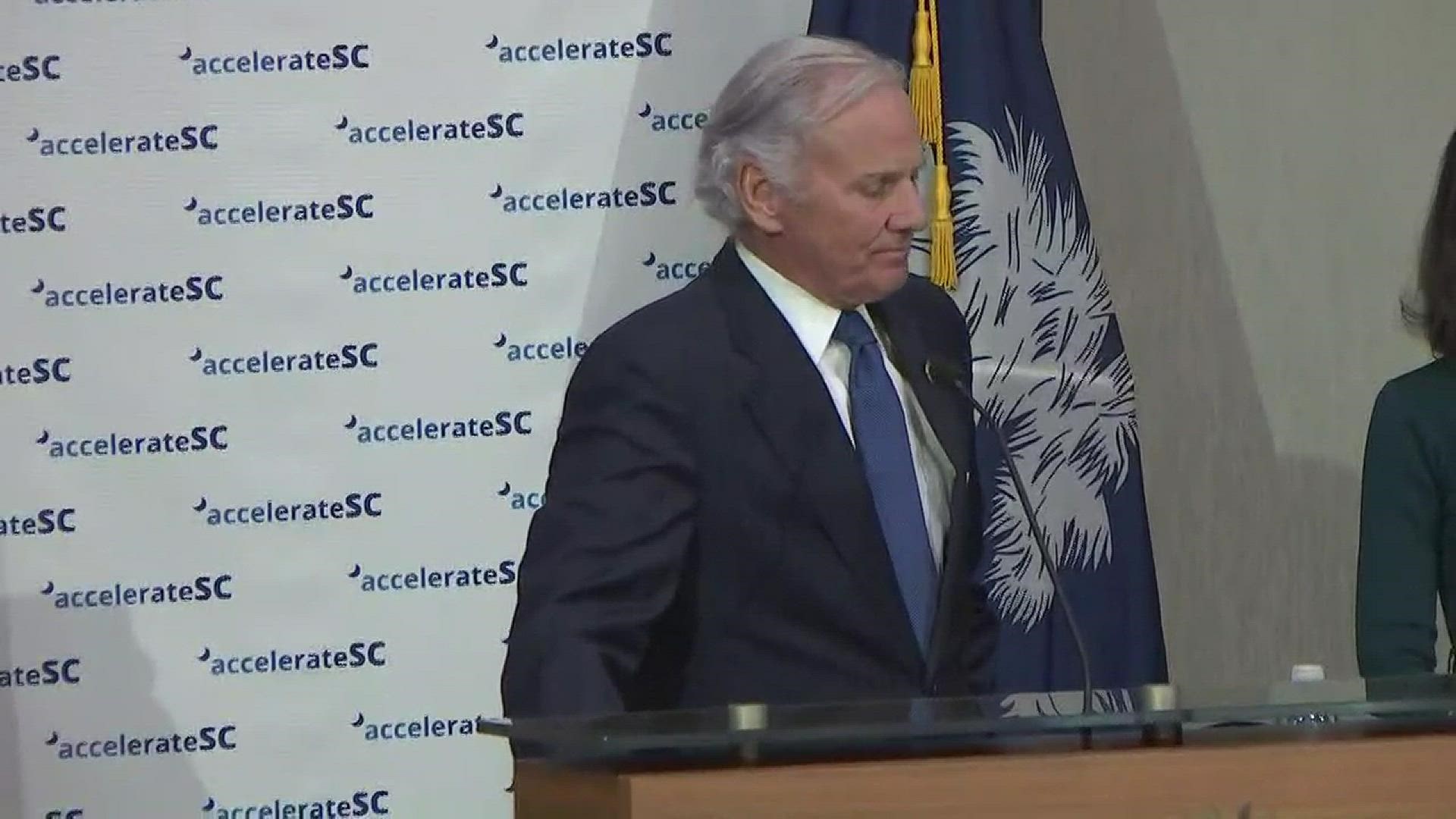COLUMBIA, S.C. — South Carolina is seeking to expand coronavirus testing to those with mild symptoms in an effort to better track and respond to the illness.
The news came shortly after South Carolina Gov. Henry McMaster held another meeting of his AccelerateSC task force in Columbia. Tuesday's meeting was of the "protection" component of the group. That's made up of people in the health care, higher education, and processional associations in the state.
They're supposed to identify protective protocols for practical implementation in workplace and public, testing and contact tracing, supply of personal protective equipment, and long-term mitigation efforts to ensure economic revitalization.
After the meeting, McMaster spoke to reporters about the state's response alongside Dr. Linda Bell, South Carolina's epidemiologist. Bell said up until now, they've had to prioritize testing to those clearly exhibiting significant symptoms, because they didn't have the resources. But she said test are more widely available now, so they'll soon start testing people with milder symptoms.
She said health experts are still learning a lot about COVID-19, including that it can be transmitted by smaller droplets from people given off by breathing close to another person.
Bell was asked if it made sense to test healthy people to determine if they could go back to work, and she said that there may not be much value in that. "There's a flaw in the thinking of testing someone with no symptoms," she said. "What if they become exposed some days later?"
She said that type of testing may be used for critical workers in the health care industry. And she said antibody testing is coming as well.
She said businesses should instead test their workers temperatures and use masks as much as possible. "Until we see a significant decline in disease activity, we will continue to ask everyone in the community to take special precautions."
On Monday, the Governance group met, which is tasked with identifying challenges faced by state and local governments, educational institutions, emergency services and first responders during the coronavirus.
During the meeting they asked questions about what issues those areas are facing, what legislative or regulatory changes need to be made and what is needed now and in the future to address the virus?
Also on Monday, McMaster signed a 15 day extension of the state of emergency.
In doing so, that means any executive orders signed during the state of emergency, including the home or work order (the state's version of a stay at home) stays in effect. However, McMaster could rescind any parts of the order at any time.
"It does not lock those orders in," McMaster explained. "We could change them at any time. Could be tomorrow."
That's what he's done over the last week and a half, as he cancelled or amended orders, which then allowed retail store to reopen and local authorities to have the power to reopen state beaches.
The state of emergency allows the state to apply for federal aid, coordinate resources with state agencies, and for the governor to suspend regulations. It also triggers the state's price gouging law.

